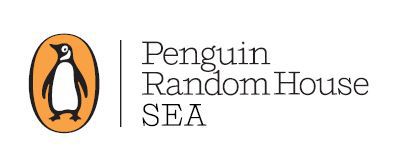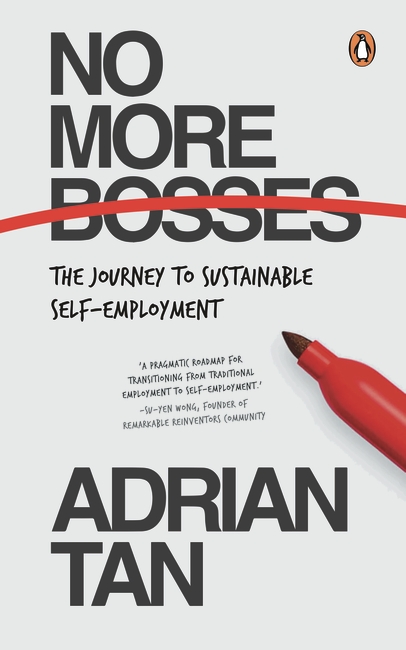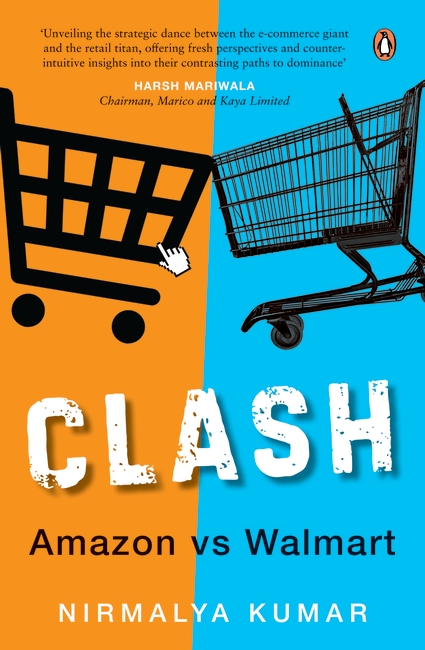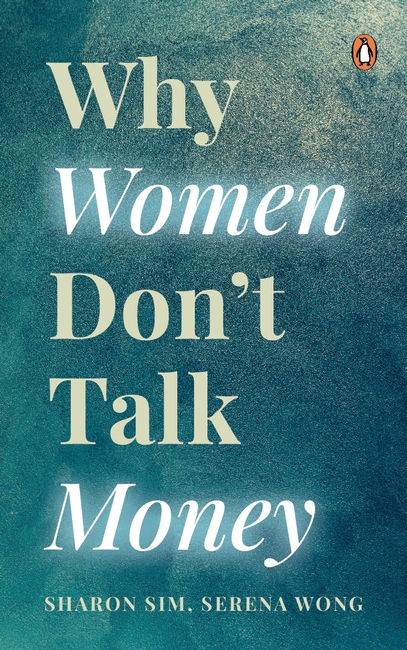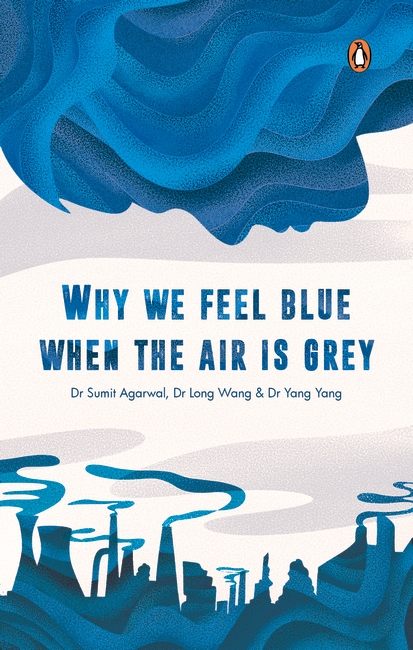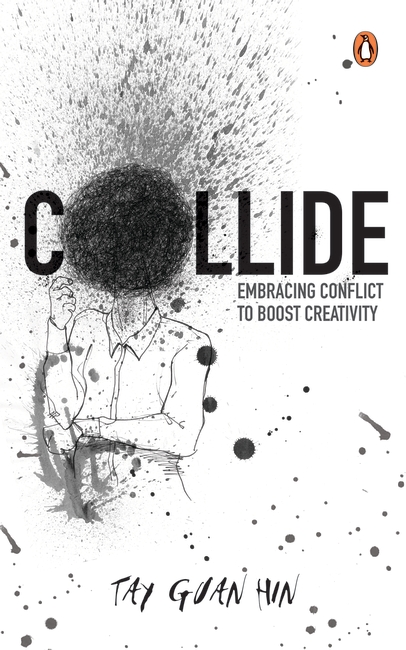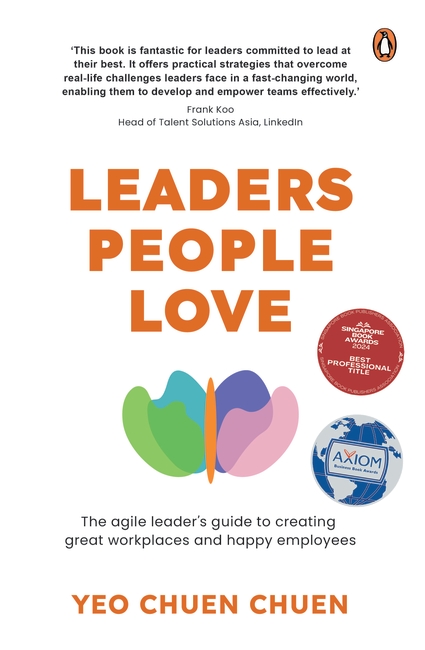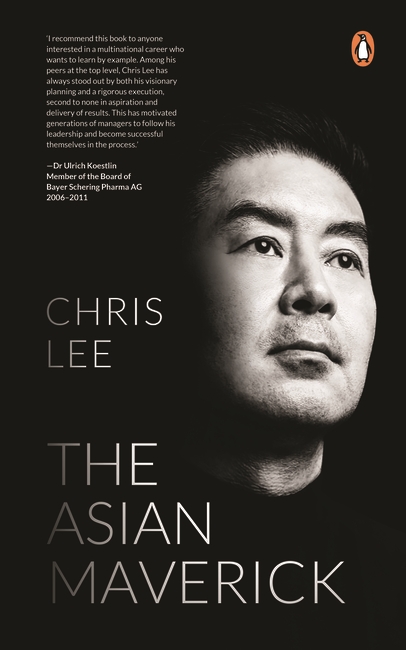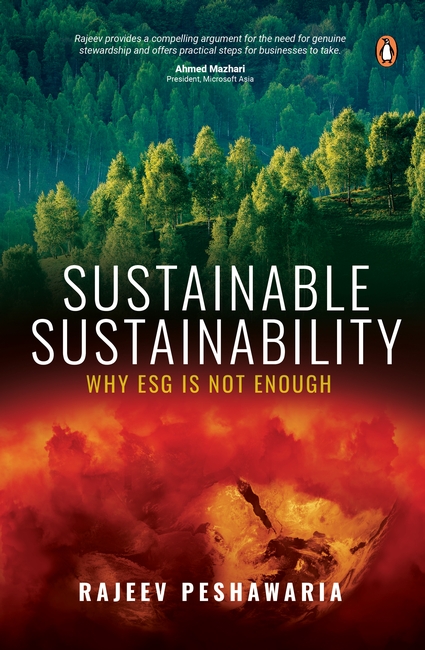
In No More Bosses, Adrian Tan shares his journey of leaving the security of a corporate job to pursue self-employment. As a former HR entrepreneur, Adrian understands the challenges and opportunities of making a mid-career transition.
Through the book, Adrian offers practical advice and insights for readers considering a similar path. He covers topics such as assessing readiness for self-employment, finding the right business idea, building a network of support, and navigating the financial considerations of going solo.
But Adrian’s story isn’t just about the nuts and bolts of starting a business. He also candidly discusses the emotional ups and downs of leaving the familiar for the unknown and how to stay motivated and resilient during the transition.
With its combination of personal narrative and actionable guidance, No More Bosses is an inspiring and valuable resource for anyone considering leaping self-employment.

Amazon and Walmart, with more than a trillion dollars in annual revenues combined, are the two largest
companies in the world. They have not only redefined the retail industry—Walmart in the 1980s/1990s and
Amazon since 2000—but have also been the benchmark for best practices in business (in terms of the use of
IT, supply chain, data analytics and customer orientation).
In the coming years, Amazon will probably dethrone Walmart as the world’s largest company, a position
that Walmart has occupied for more than two decades. By examining these two companies and their
business models in depth, Nirmalya Kumar elucidates the more general phenomenon of incumbents competing with disruptors (e.g., Volkswagen vs Tesla, Marriott vs Airbnb) as well as the move to omnichannel retail, where physical stores must coexist with online retailers.
Clash is a lucid, well-researched and eminently readable discourse on the future of retailing, the economics of e-commerce delivery models and whether its two largest players will collide head-on or coexist in
strategic complementarity.

Society is uncomfortable with two factors: women in power, and women with money. But, why is that so? Despite the societal advancements the world has made since universal suffrage, women are still uncomfortable discussing money matters with their partners and peers.
In this book, 24 powerful women bare their souls to finance professionals Sharon Sim and Serena Wong about their struggles with making money and keeping it, their sometimes uncomfortable relationship with the all-powerful dollar, and how they’ve come to terms with, even celebrate, their financial and personal status in the world.

Companies today operate in an era characterised by volatility, crisis, lack of trust and intense scrutiny. People have a growing expectation that the private sector not only markets a particular product or service but also takes an active role in making broader contributions to society. The spotlight has never shone more fiercely on what companies say—and do.
Yet, a significant number of companies grapple with the challenge of proactively earning and safeguarding their multifaceted reputations. The stakes are higher than ever, as the trajectory of a company’s growth is intricately linked to its ability to strategically enhance its standing in the eyes of stakeholders – including investors, customers, employees, regulators and activists.
Reputations of Value examines the profound impact of corporate reputations on any company’s ability to advance its business agenda over time. The book features insights from subject matter experts around the world. It serves as a guide for those wanting to better understand how companies can operate on a stronger, more resilient, and authentic basis in the face of a dynamic and unpredictable landscape.

In more than a decade as a psychotherapist to some of Asia’s most powerful couples and businesspeople, expat New Yorker Allison Heiliczer has seen it all.
In Rethink The Couch: Into the Bedrooms and Boardrooms of Asia with an Expat Therapist, Heiliczer brings readers into her therapy room and engagements with such clients: the Singaporean maneater with a portfolio comparing the endowments-physical and financial-of her expat lovers; the wealthy Chinese litigator in thrall to a feng shui master; the entrepreneur trying to treat his own ADHD; the Indonesian-Chinese businessman who faced a reckoning when his multiple unzipperings were exposed, and many others.
But, this is no exposé. Part East-meets-West expat journey, part self-help deliberation, this collection of personal narratives explores the influence cultural backgrounds have on work and relationships and sheds light on stigmas that still surround divorce, therapy, mental health, and more today in Asia. Asia may lag the West in this regard – for now – but there is a quiet revolution afoot and Heiliczer is at the vanguard.
From toxic offices and complex relationships, boardroom power and bedroom failure, doomed marriages and ill-advised affairs, workaholism, loneliness, lies; these are struggles more common than many of us care to admit. Heiliczer lays them all bare through the prism of culture and is expert in understanding what makes those embroiled in them tick.

Unveil the obscured world of air pollution as you embark on a compelling journey with Ian. In this gripping book, each chapter uncovers a new layer of the crisis, leaving readers enlightened and impassioned.
From the very first chapter, the stark reality of polluted cities takes hold. Join Ian as he delves into the causes and solutions of air pollution in urban areas. Mobile and stationary sources, agricultural areas, and the menacing forces of wildfires and sandstorms converge, forming a suffocating cloud. As the curtain lifts on these sources of pollution, it becomes glaringly clear that the impacts on daily life have long been overlooked.
Venture further into the pages of this captivating narrative to unearth the profound repercussions of polluted air. Witness the connection between air pollution and disease, as empirical evidence reveals decreased life expectancy and increased hospitalizations. Discover how pollution engulfs workplaces, stifling productivity across sectors from agriculture to manufacturing and the service industry. The altered consumption patterns and diminished satisfaction of individuals trapped indoors during hazy days become vividly apparent. Through masterful storytelling, the author illuminates hidden threads linking air pollution to diverse facets of society. From the enthralling dynamics of the real estate market under smoggy skies to the clandestine practices of nighttime emissions, each chapter paints a vivid portrait of a world grappling with the consequences of pollution. Engage with this thought-provoking exploration, urging readers to confront the urgent need for change in the face of a crisis that permeates every aspect of life.
Embark on this essential journey and empower yourself to champion change. Ian as he navigates the fog of pollution, unmasking its perils and inspiring a collective determination to build a brighter future.

Creative conflict is the world’s most powerful ideation technique. It’s an essential requirement for breakthrough-thinking and the secret behind every invention and innovation ever made.
Are you overwhelmed by problems that need solving? Stuck looking for ideas? Pressured by deadlines and worried you don’t have a creative bone in your body? Then this is the book for you!
Collide demystifies the process of how to come up with effective, problem-solving ideas.
This book will help you discover how to unlock the transformative power of creative conflict. You will become an expert at sparking creativity. By the time you get to the end of this book, you will have all the tools to brainstorm like a champion.
But be warned. Smashing ideas together is messy. Things will be broken. There are dangers ahead and I can’t protect you from all of them. It’s time to put your safety goggles on. The ride’s about to begin.

Silver Medal Winner (Company Culture) in the 2024 Axiom Business Book Awards
Post-pandemic, the whole world is being reset. With this unifying experience that challenges our identity, rules are broken; beliefs are corrected. Happiness and meaning in work and life are no longer optional. With success being redefined as we speak, what this means for leaders is they too, now need to reset their compasses urgently—for the real threat is obsolescence and irrelevance.
The time to act is now.
But with many management practices fading into irrelevance, how then, can leaders chart their paths in these complex and disruptive times?
While there is no one right way to lead and make an impact, for ‘right’ is subjective and contextual, the good news is that proven methods have been discovered—some of which will be shared in this book’s pages.
Leaders People Love features a host of accessible leadership lessons. Undergirded by a contemporary and relevant mindset, these strategies consistently yield excellent results and prove a point: becoming an effective and well-loved leader is possible if you know how.
Explore an authentic yet agile approach to discovering the best leader in you. Becoming a leader that people love to work with and for can, in turn, create meaningful workplaces where people love to come to collaborate, strive and succeed.

Chris Lee had a cushy role. For a decade, he led the Asia Pacific division of Medtronic, a multibillion dollar business and one of the world’s largest manufacturers of medical devices, and consistently produced excellent business outcomes. Then, at fifty-six, he threw all of that away to start VentureBlick, an international fundraising platform matching healthcare startups and medical investors. Why did Lee do that?
Lee takes us through his journey as one of the youngest Asian leaders in an MNC (youngest director in Merck at age twenty-seven, youngest country manager at thirty, first Asia-Pacific leader reporting to Bayer HQ at thirty-nine), how he brought Asian leadership sensibilities into multiple global companies, and reveals why he believes it’s important for corporate leaders to adopt an Asian lens and think like a maverick.

The good news is that everyone is talking about ESG.
The bad news is that everyone is talking about ESG.
The cry for a more inclusive form of capitalism is growing. But the irony is we are using the same tools that caused the excesses of shareholder capitalism—incentives and regulations—to drive responsible behaviour.
Eighteenth-century economist Adam Smith propagated profit maximization as the incentive for businesses to create goods and services that society needs. He argued that free-market competition would ensure consumers get the best quality product at the cheapest price.
200 years later, Milton Friedman agreed in his seminal 1970 New York Times op-ed that the sole responsibility of business is to maximize profits ‘so long as it stays within the rules of the game’. Incentives coupled with some regulations were to henceforth safeguard societal interests.
Instead, incentives created bad behaviour. Regulations were routinely bypassed with intelligent loopholes. Despite this—to encourage sustainability today—we are again using incentives and regulations. That’s predominantly what the ESG framework focuses on. And what do we see? Rampant greenwashing and box-ticking.
To address today’s existential challenges, we need innovation of the highest order. Innovation can neither be legislated nor driven by extrinsic incentives alone. We need a values-driven revolution. We need steward leadership—the ability to create a win-win-win future for stakeholders, society, and the environment. ESG must upgrade to ESL, where the ‘L’ stands for Steward Leadership. In ESL, ‘G’ is a subset of ‘L’.
Sustainable Sustainability lays out a practical, step-by-step playbook for any commercial entity that wants to succeed at marrying profit and purpose.
https://www.sustainable-sustainability.com





